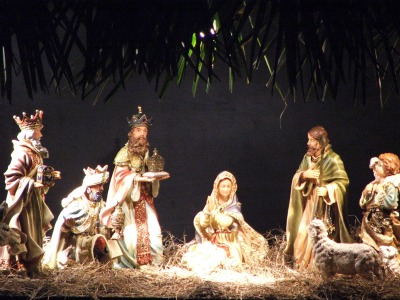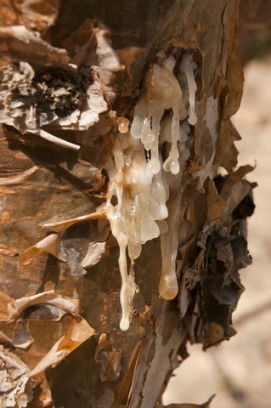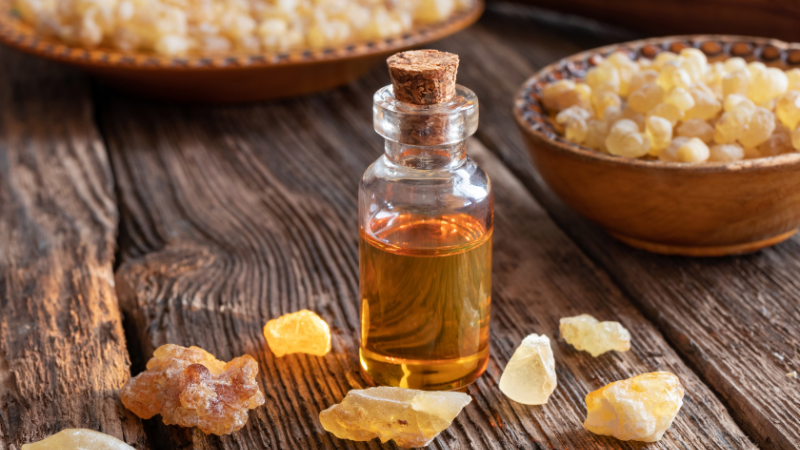“Jesus was born in Bethlehem in Judea, during the reign of King Herod. About that time some wise men from eastern lands arrived in Jerusalem, asking, 2′Where is the newborn king of the Jews? We saw his star as it rose, and we have come to worship him.'” Matthew 2: 1-2
During the busy Christmas season, when I take a few moments for a little silence and solitude, my mind wanders to that first Christmas Eve, and how that night must have been for that scared little girl. And I’ve always been fascinated by the story of the Magi. Coming from an accounting background, and having given birth to two little ones myself, I’ve always wondered, “Is there a loving Heavenly Father, who could let Mary be in such high risk environment to deliver His own Son? What was the big deal about the gifts of frankincense and myrrh anyway?”
Inquiring minds like mine want to know the answers to these questions and others, for instance:
Just how many Magi were there?
3″When King Herod heard this he was disturbed, and all Jerusalem with him.”
J. Vernon McGee speculates in his book, Through the Bible Commentary, that three wealthy priests traveling alone would not make sense. The geography was extremely hostile and the area was infested with dangerous criminals and beasts of prey. Because of this, “honest” folks did not travel in small groups, but in large caravans. But most importantly, three wise men would not have disturbed King Herod, nor excited Jerusalem, a large, bustling trade center, swollen with visitors reporting for the tax census. McGee states, “I don’t know how many there were, but I’m almost sure it wasn’t three, and I believe three hundred would be more nearly true.” (5Your eyes will shine, and your heart will thrill with joy, for merchants from around the world will come to you. They will bring you the wealth of many lands. 6Vast caravans of camels will converge on you, the camels of Midian and Ephah. Isaiah 60: 3, 5 [written circa 700 680 BC])
When did they arrive?
7Then Herod called the Magi secretly and found out from them the exact time the star had appeared”. 16 When Herod realized that he had been outwitted by the Magi, he was furious, and he gave orders to kill all the boys in Bethlehem and its vicinity who were two years old and under, in accordance with the time he had learned from the Magi.” Matthew 2: 7,16
Because Herod was threatened by all little boys age two years and younger, many speculate that the Wise Men arrived up to two years after Jesus was born. I don’t believe this makes much sense either. Mary and Joseph were short term visitors to Bethlehem, at the time of Jesus birth, forced to go there for a census. They obviously had no close relatives there, or they would have gone to their home for the delivery of her baby, rather than the stable of a stranger’s home. So it would have made sense that they would have returned to their own home and relatives as soon as possible. If the Magi didn’t show up till two years later, Mary and Joseph and Jesus would probably have been long gone. I think the two year time frame refers to the length of time between when the star first appeared, two years prior to the birthday, calling them to Bethlehem, and the time of their arrival. It would have taken the Magi very close to two years or more to get from their home in Persia to Bethlehem, by way of Sheba (present day Oman and Yemen, along the southern coast of Arabia), to pick up a caravan load of frankincense and myrrh (where it was, and is today, grown and distilled), and continue north to Jerusalem and Bethlehem, by way of camel and/or ship, along the “Frankincense Trail,” the busy trade route that followed the coast of the Red Sea. (And all from Sheba will come, bearing gold and incense and proclaiming the praise of the LORD. Isaiah 60:6). Knowing what I now know about frankincense oil, I am convinced that the Heavenly Father would have ensured Mary, the one who is most “highly favored,” the mother of his one and only Son, had frankincense for her delivery.
two years after Jesus was born. I don’t believe this makes much sense either. Mary and Joseph were short term visitors to Bethlehem, at the time of Jesus birth, forced to go there for a census. They obviously had no close relatives there, or they would have gone to their home for the delivery of her baby, rather than the stable of a stranger’s home. So it would have made sense that they would have returned to their own home and relatives as soon as possible. If the Magi didn’t show up till two years later, Mary and Joseph and Jesus would probably have been long gone. I think the two year time frame refers to the length of time between when the star first appeared, two years prior to the birthday, calling them to Bethlehem, and the time of their arrival. It would have taken the Magi very close to two years or more to get from their home in Persia to Bethlehem, by way of Sheba (present day Oman and Yemen, along the southern coast of Arabia), to pick up a caravan load of frankincense and myrrh (where it was, and is today, grown and distilled), and continue north to Jerusalem and Bethlehem, by way of camel and/or ship, along the “Frankincense Trail,” the busy trade route that followed the coast of the Red Sea. (And all from Sheba will come, bearing gold and incense and proclaiming the praise of the LORD. Isaiah 60:6). Knowing what I now know about frankincense oil, I am convinced that the Heavenly Father would have ensured Mary, the one who is most “highly favored,” the mother of his one and only Son, had frankincense for her delivery.
“On coming to the house, they saw the child with his mother Mary, and they bowed down and worshiped him. Then they opened their treasures and presented him with gifts of gold, frankincense and myrrh.” Matthew 2: 11
So that brings us to the most important question:
Why was it so important to get frankincense to Mary and baby Jesus?
Like a generous father, Frankincense would provide a wealthy financial base. The botanical name for frankincense, a Medieval French term meaning, “real incense,” is Burseraceae, and comes from the Boswellian tree indigenous to the southern areas of Arabia. It was more valuable than gold – only the very wealthy could possess it. Perhaps, this was Jesus’ lifetime trust fund! (Only Matthew, a former tax collector, a “bean-counter” sort of person, thought it important to include the account of the wise men’s visit.)
Like a loving father, who cares for the wellbeing of all his children, frankincense would have benefitted that young girl, too, at the time of delivery, not only as a disinfectant protecting her from infections, but also as a very effective muscle relaxant. Boswellic acids found in the gum resin have also been shown to have powerful anti-inflammatory effects.
Keeping in mind that she would have naturally been overwrought with fear and anxiety, frankincense is calming, meditative and relaxing, while uplifting for the spirits. It had been used by the priests of Israel, as well as most every other nation and religion, to enhance meditation and spiritual awareness (Exodus 30:34-36, Leviticus 2:1-2, are among the many references to frankincense being used in this way).
Like a protective father, frankincense was used to anoint sons of kings and priests – for both medicinal as well as ritual purposes. A newborn prince’s entire body was massaged frequently, perhaps daily, with frankincense, throughout childhood. This would have disinfected his skin, healed any wounds, and stimulated his immunity system, protecting the babe from any bacteria, viruses, fungi, and any other infections, helping to ensure the young prince would grow up healthy and strong to inherit the kingdom. This certainly would have come in handy for a young girl giving birth in a filthy barn.
In fact, the Egyptians had a saying regarding frankincense: “Frankincense is good for everything from gout to a broken head.” Or, in other words, it’s good for everything from head to toe!
Today, in research institutions around the world (see a partial list of recent research below), frankince nse is coming to the forefront in the fight against cancer. Oklahoma State University, Wake Forest University, Virginia-Maryland Regional College of Veterinary Medicine, and many, many others have verified the cancer prevention and healing properties of frankincense. For instance, they have found the compound l-limonene, that is rich in frankincense, shows a remarkable ability to suppress tumor growth, particularly in melanoma. And HK Lin and his team from the University of Oklahoma found that frankincense oil is able to discriminate between normal cells and cancerous bladder cells, and specifically kill the cancer cells, while not harming the normal cells!!
nse is coming to the forefront in the fight against cancer. Oklahoma State University, Wake Forest University, Virginia-Maryland Regional College of Veterinary Medicine, and many, many others have verified the cancer prevention and healing properties of frankincense. For instance, they have found the compound l-limonene, that is rich in frankincense, shows a remarkable ability to suppress tumor growth, particularly in melanoma. And HK Lin and his team from the University of Oklahoma found that frankincense oil is able to discriminate between normal cells and cancerous bladder cells, and specifically kill the cancer cells, while not harming the normal cells!!
Yes, Friends, there is a Heavenly Father. Now, in my silence and solitude contemplating that first Christmas Eve, I am comforted, knowing – He exists as certainly as love and generosity and devotion exist, and you know that they abound and give to your life its highest beauty and joy. He has promised He would never leave us nor forsake us, and I have seen that He is a perfect Gentleman, a Man of His Word. I believe He sent His generous, loving and protective gifts to that scared little girl 2000 years ago on that very first Christmas Eve, and He sends His generous, loving, protective gifts to us, His children, today. “Thank God! He lives, and He lives forever. A thousand years from now, my friends, nay, ten times ten thousand years from now, he will continue to make glad the hearts of all his children!”
On this Thanksgiving and Christmas, may you fully grasp the magnitude of God’s generous gifts of love and provision, and join me in praising His Holy Name.
Notes:
(1) Wang. L.G., et al. Determination of DNA topoisomerase II activity from L1210 cells “a target for screening antitumor agents.” Chung Kua Yao Li Hsueh Pao. 1991; 12(2):108-14.
(2) Lis-Balchin M, Hart S. A preliminary study of the effect of essential oils on skeletal and smooth muscle in vitro. J Ethnopharmacol. 1997 Nov; 58(3):183-7.
(3) Crowell PL. Prevention and therapy of cancer by dietary monoterpenes. J Nutr. 1999 March,129(3):775S-778S. Department of Biology, Indiana University-Purdue University, Indianapolis, IN 46202 http://jn.nutrition.org/cgi/content/full/129/3/775S.
(4) Frankincense oil derived from Boswellia carteri induces tumor cell specific cytotoxicity
Mark Barton Frank, Qing Yang, Jeanette Osban, Joseph T Azzarello, Marcia R Saban, Ricardo Saban, Richard A Ashley, Jan C Welter, Kar-Ming Fung and Hsueh-Kung Lin http://www.biomedcentral.com/bmccomplementalternmed/
* Paraphrase of an editorial, first published in The Sun Newspaper, September 21, 1897, entitled, “Yes, Virginia, There is a Santa Clause.”



